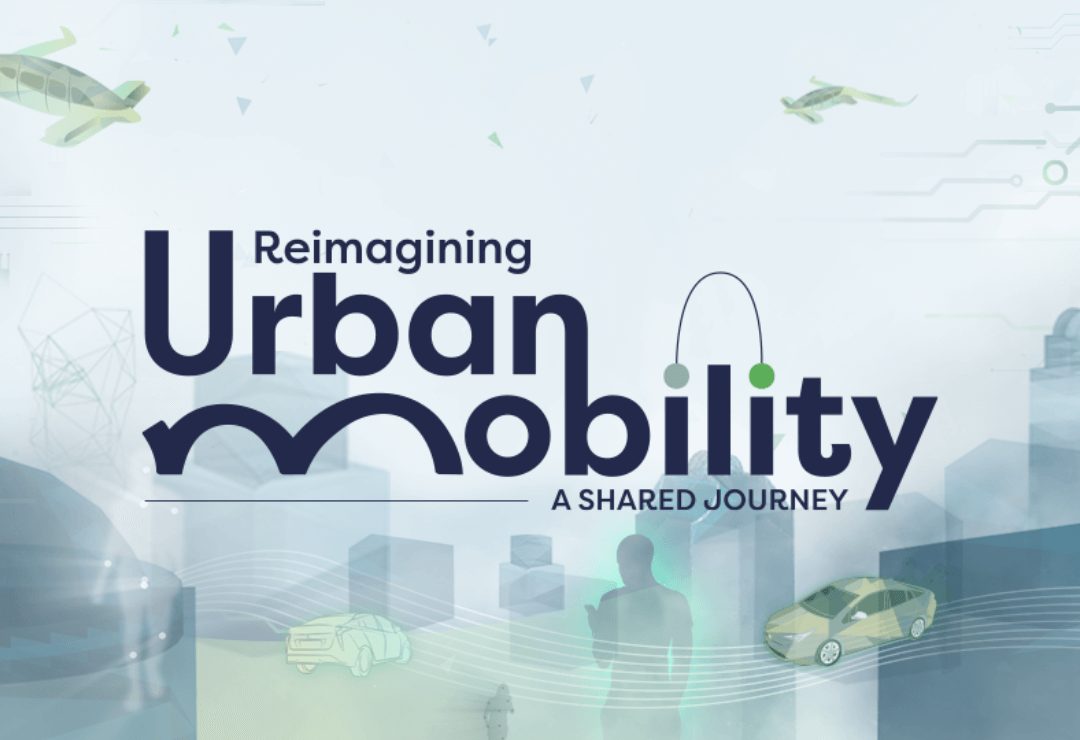Sign the Reimagining Mobility Manifesto today!
Sign the Reimagining Mobility Manifesto today! One year later, the Manifesto's signatories are urging other businesses to join them in reaffirming their commitment to equitable, sustainable, and inclusive urban mobility. Now that the new website has gone live, more can join the expanding list of stakeholders pledging their support for these ambitious objectives.
The Reimagining Mobility Manifesto calls on representatives from the private sector to help advance the transport transformation in cities.
Last year, POLIS hosted ‘Reimagining Urban Mobility: A Shared Journey’, a roundtable debate, bringing together CEOs from the private sector, with high-level representatives from civil society, European institutions, and local governments. On this occasion, CEOs from leading mobility companies signed a manifesto on the Future of Urban Mobility in Europe. The initiative, launched during the EU Mobility Week last year by Aurora, Arrival, Lilium, Lime, and Uber, commits signatories to common principles and clear action towards sustainable and inclusive mobility.
A new, collective vision for urban mobility
One year on, we are calling on other mobility companies to also join the Reimagining Urban Mobility manifesto. To radically transform transportation in our cities, we need the public and private sectors to join forces. We are facing a once-in-a-generation opportunity to look at and invest in European urban mobility with a fresh and constructive perspective, the time is now!
At last year’s round table, CEOs expressed a vision for urban mobility that is centred on equal access to public space and reduces the carbon output of urban areas. POLIS members, David Belliard, Deputy Mayor for Mobility in Paris, and, Miguel Gaspar, Deputy Mayor for Mobility in Lisbon joined the CEOs for rigorous discussion on the way forward.
The outcome was clear. We can no longer afford to drag our feet; transport is currently responsible for around one-fifth of the global CO2 emissions, with urban passenger transport accounting for nearly a third of this.
The manifesto argues for drawing targets forward, calling for the date by which EU cities and regions should be net zero to be 2035 instead of the current target of 2050.
Urban mobility reimagined: the need for equitable transport
At the same time, the manifesto calls for a re-envisioning of the core tenets of urban mobility, and how ‘accessibility’ and ‘inclusion’ are defined and delivered.
This is in line with POLIS’ Just Transition Agenda, which called on cities and regions to address affordability, equity, and inclusion, paying attention to gender, age, ability, and socio-economic aspects affecting access to transport- while also re-examining rapidly changing labour concerns.
“It is important that interested parties come forward and sign the manifesto. We are open to a diverse range of private stakeholders, and we realise the value of collaboration and working together towards goals that ultimately benefit everyone, especially end users. This manifesto is an expression of the understanding that we have to rethink the ways in which we interact with urban mobility in today’s Europe. It is our job now to mobilise support and to help policymakers polish their perceptions on what support is required to make new mobility a reality and work together with the private sector on policy-responsive innovation”, said POLIS Secretary General, Karen Vancluysen.
Moving forward
What is next? This manifesto is a springboard for bringing more stakeholders to the table, strengthening and broadening these commitments further.
Signatories are calling on other companies to sign the manifesto and reinforce their commitments to sustainable, fair, and inclusive urban mobility. The new website has now been launched, where others can add their name to the growing list of stakeholders committing themselves to these ambitious goals.
Find out more here.



